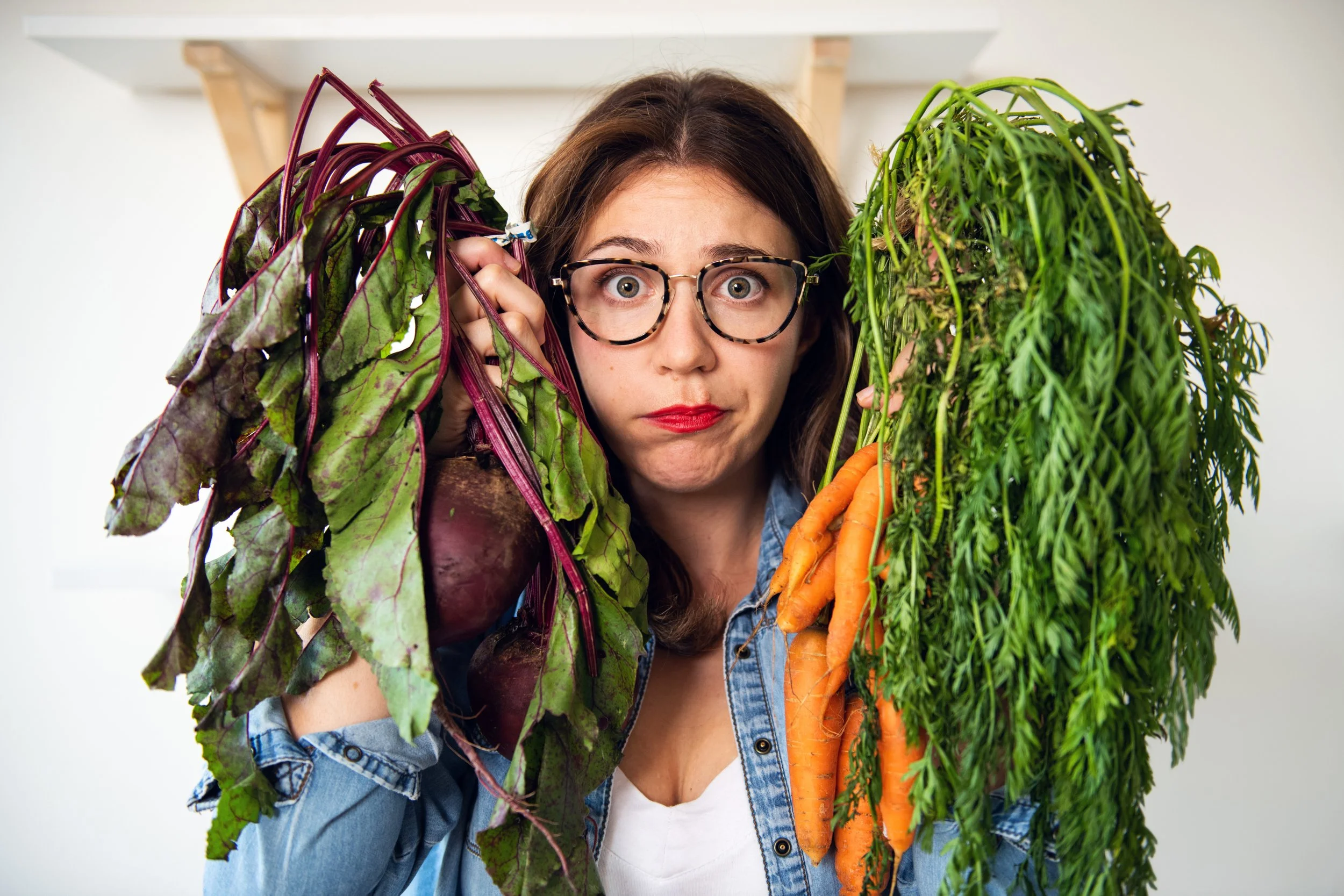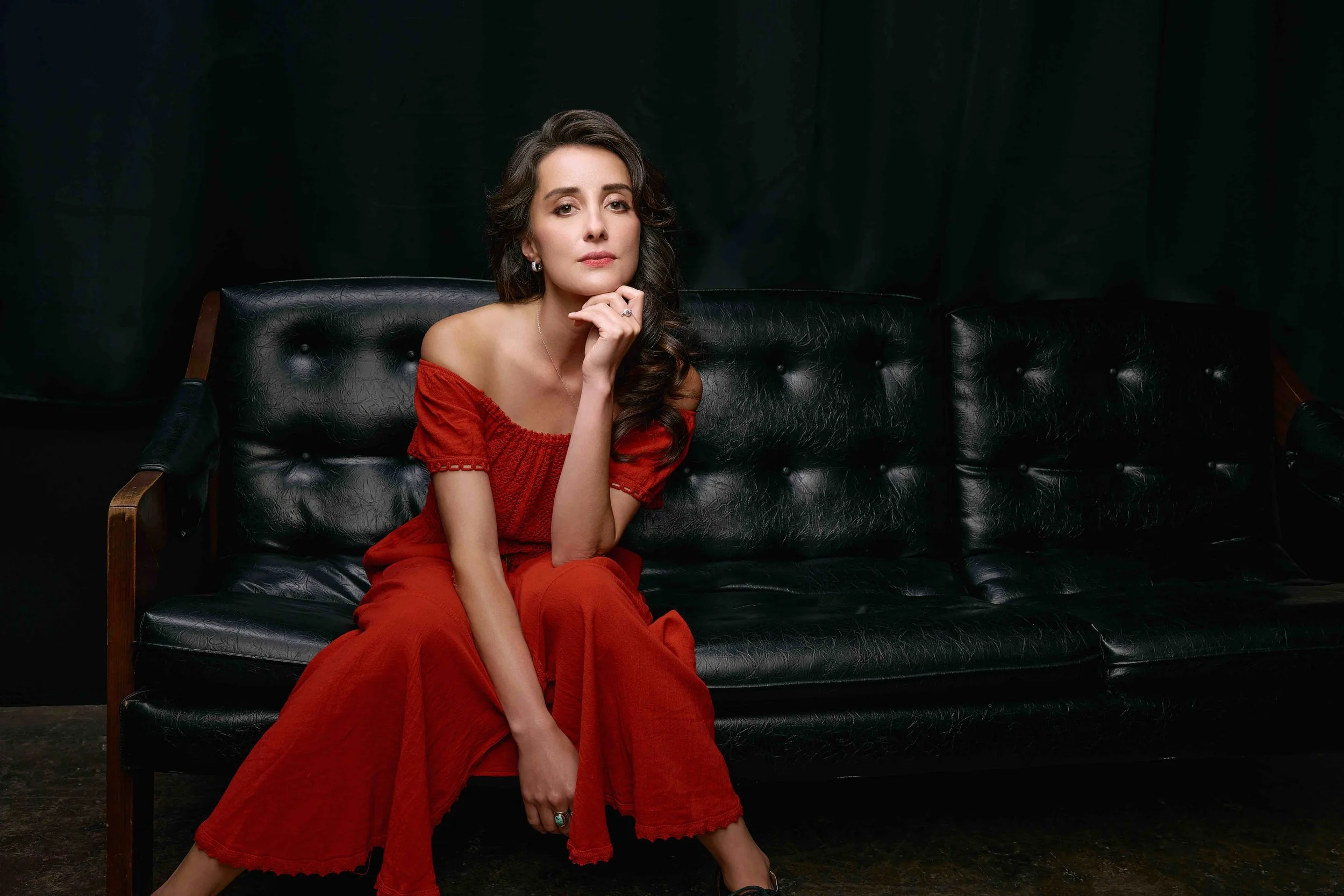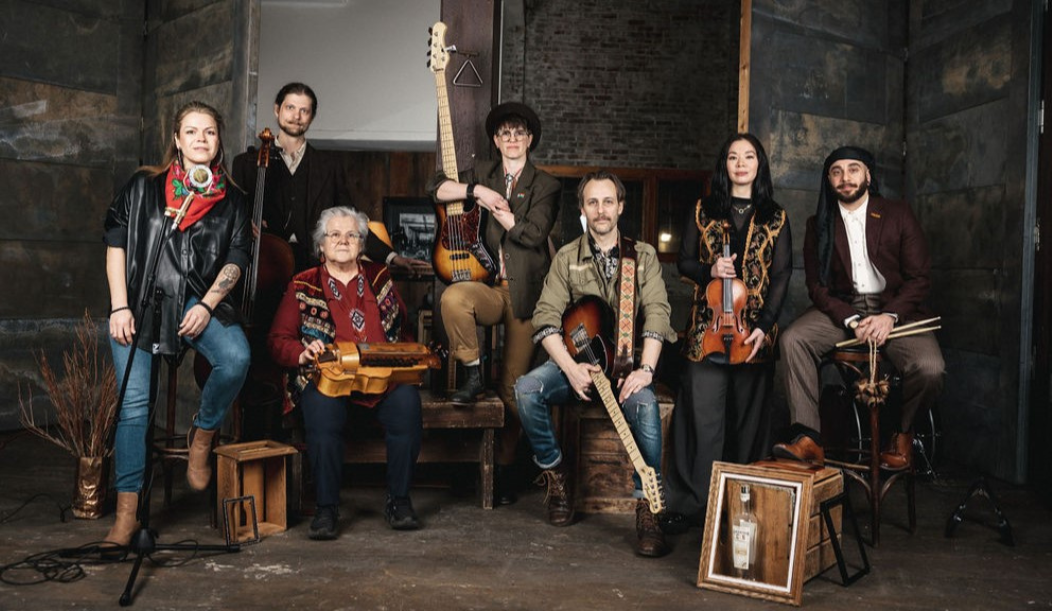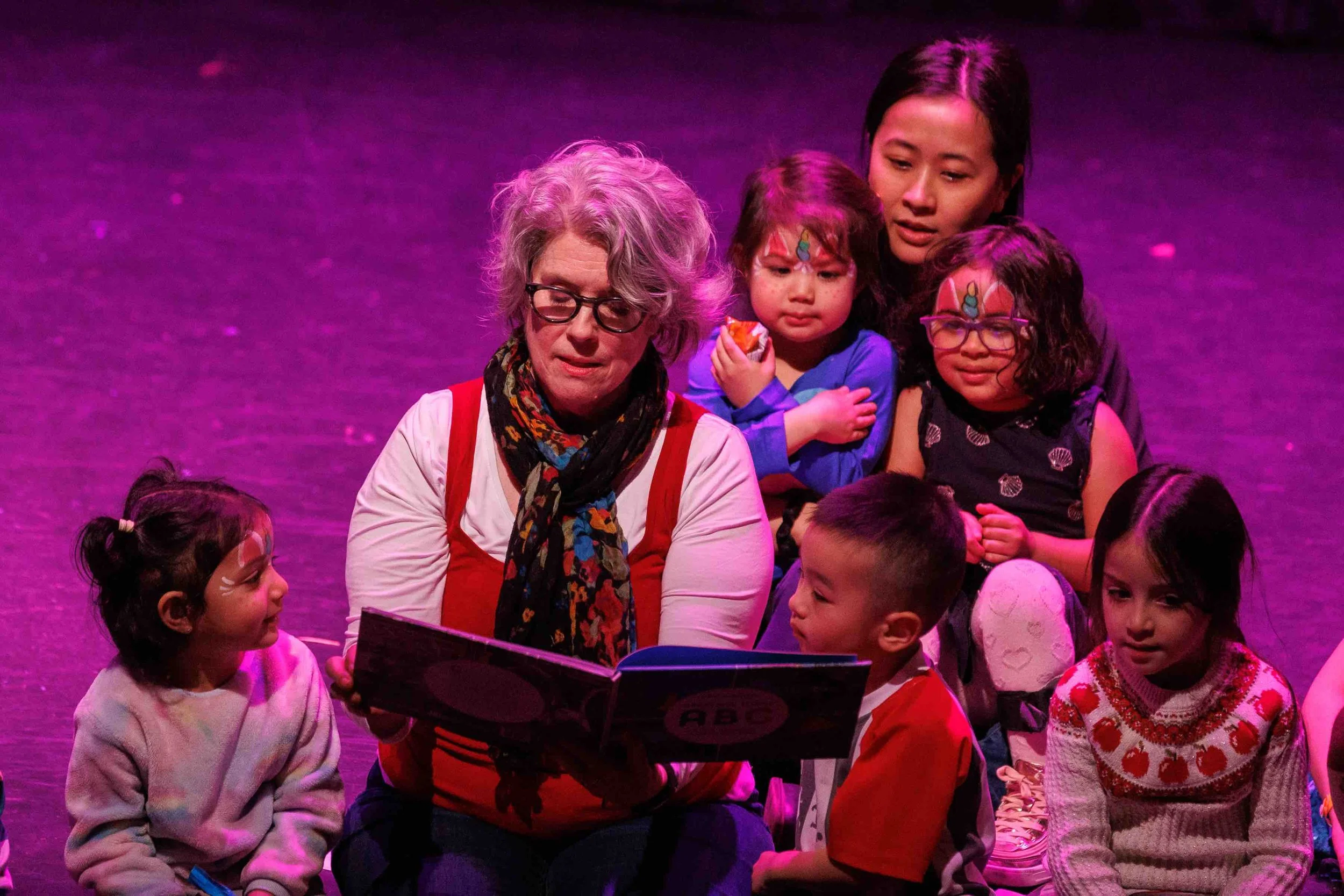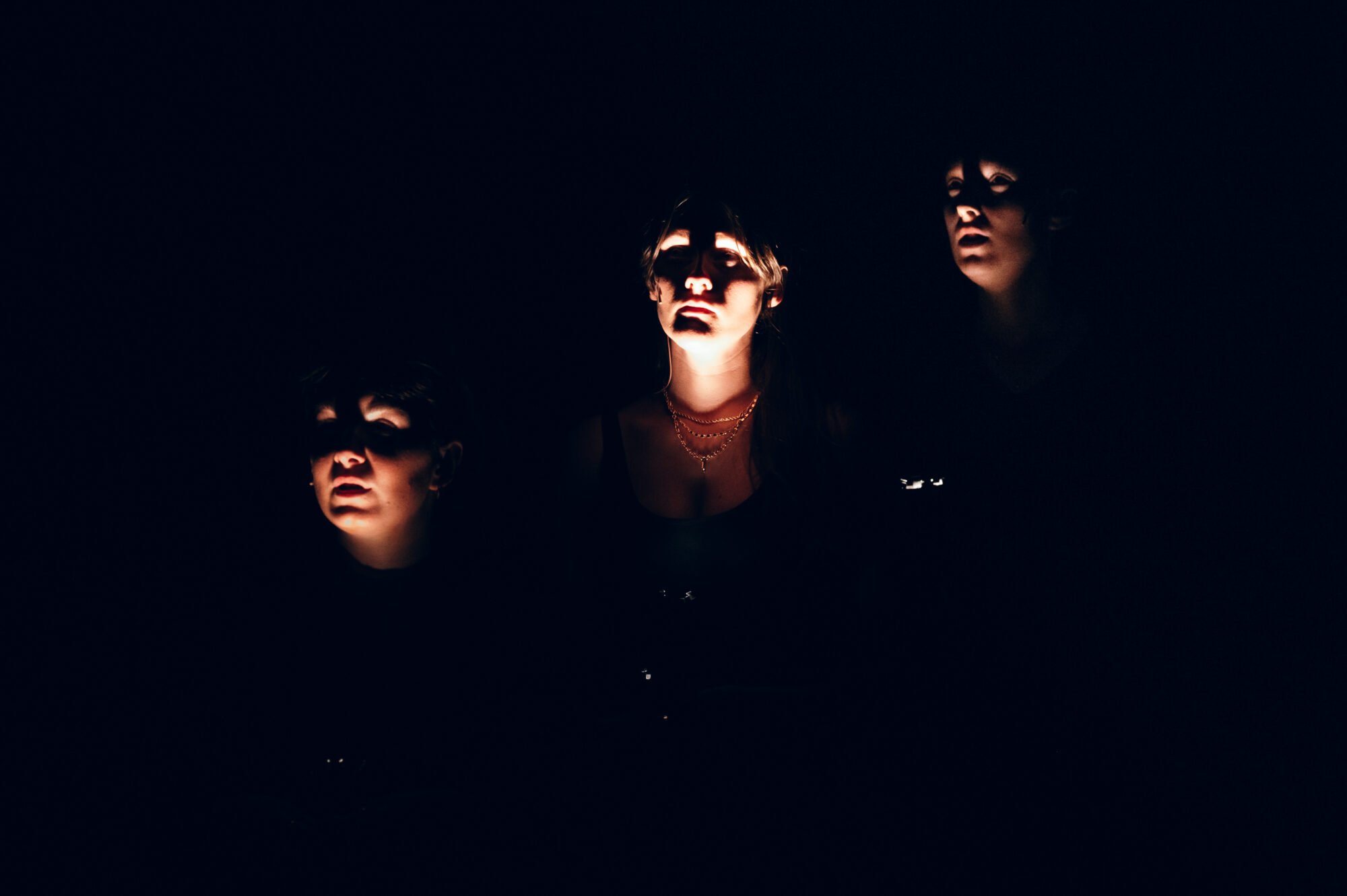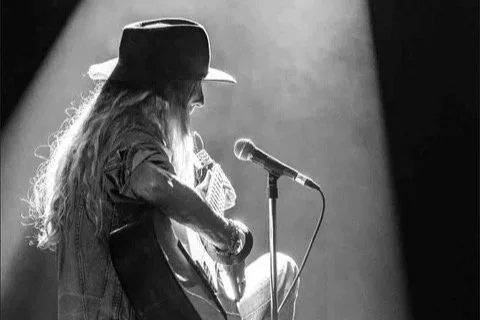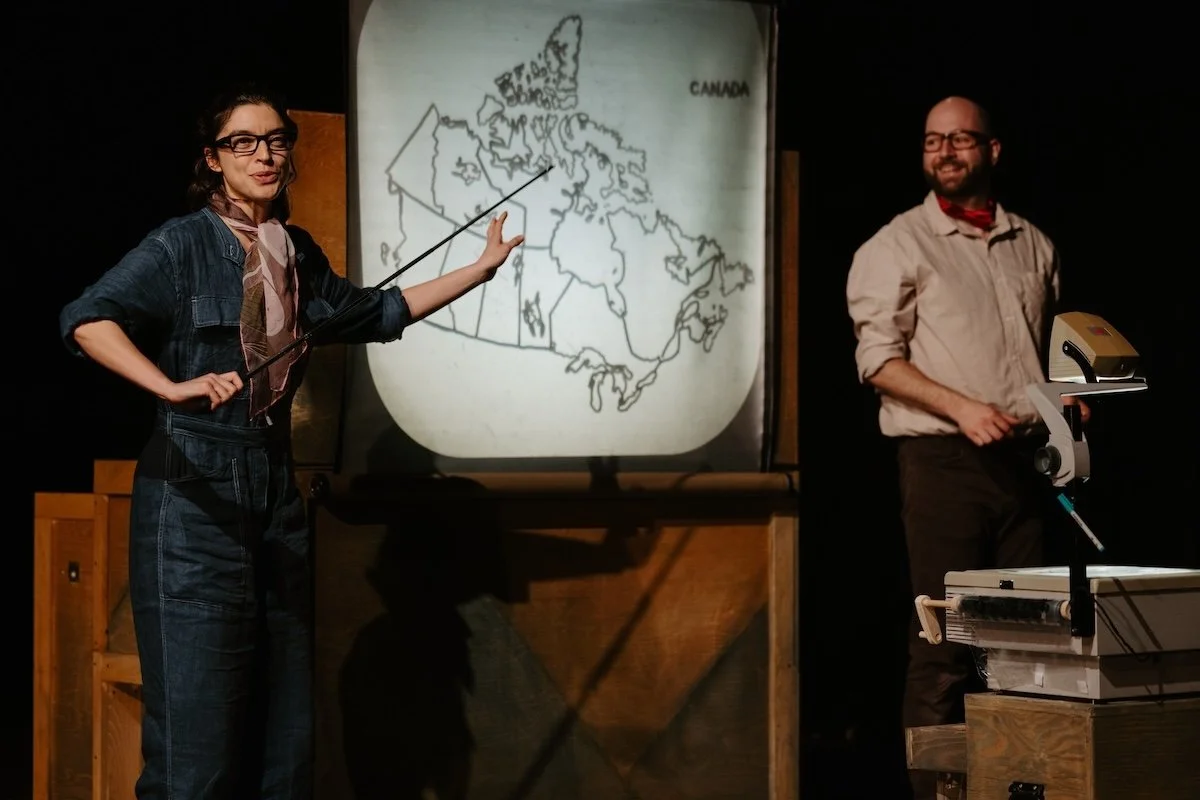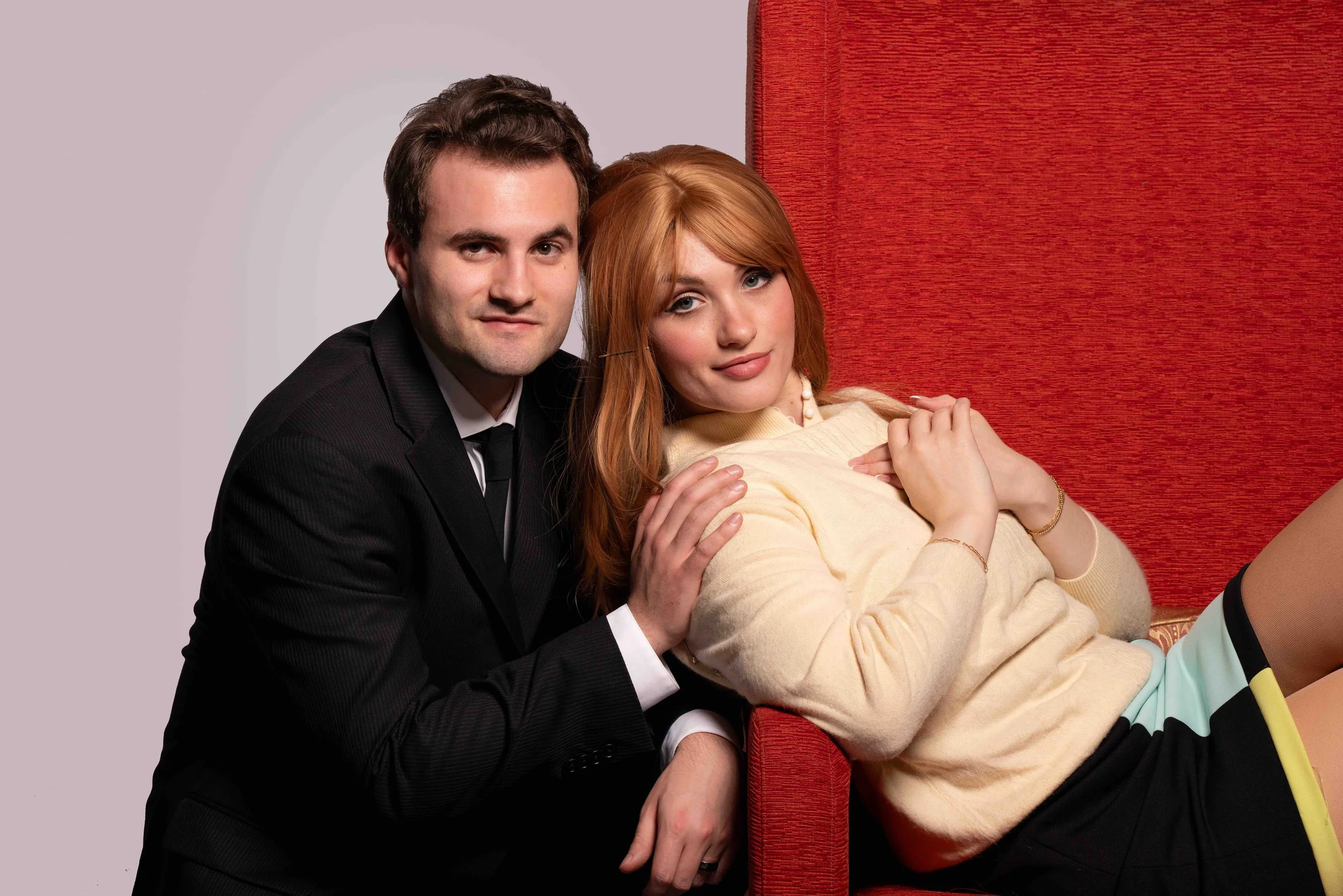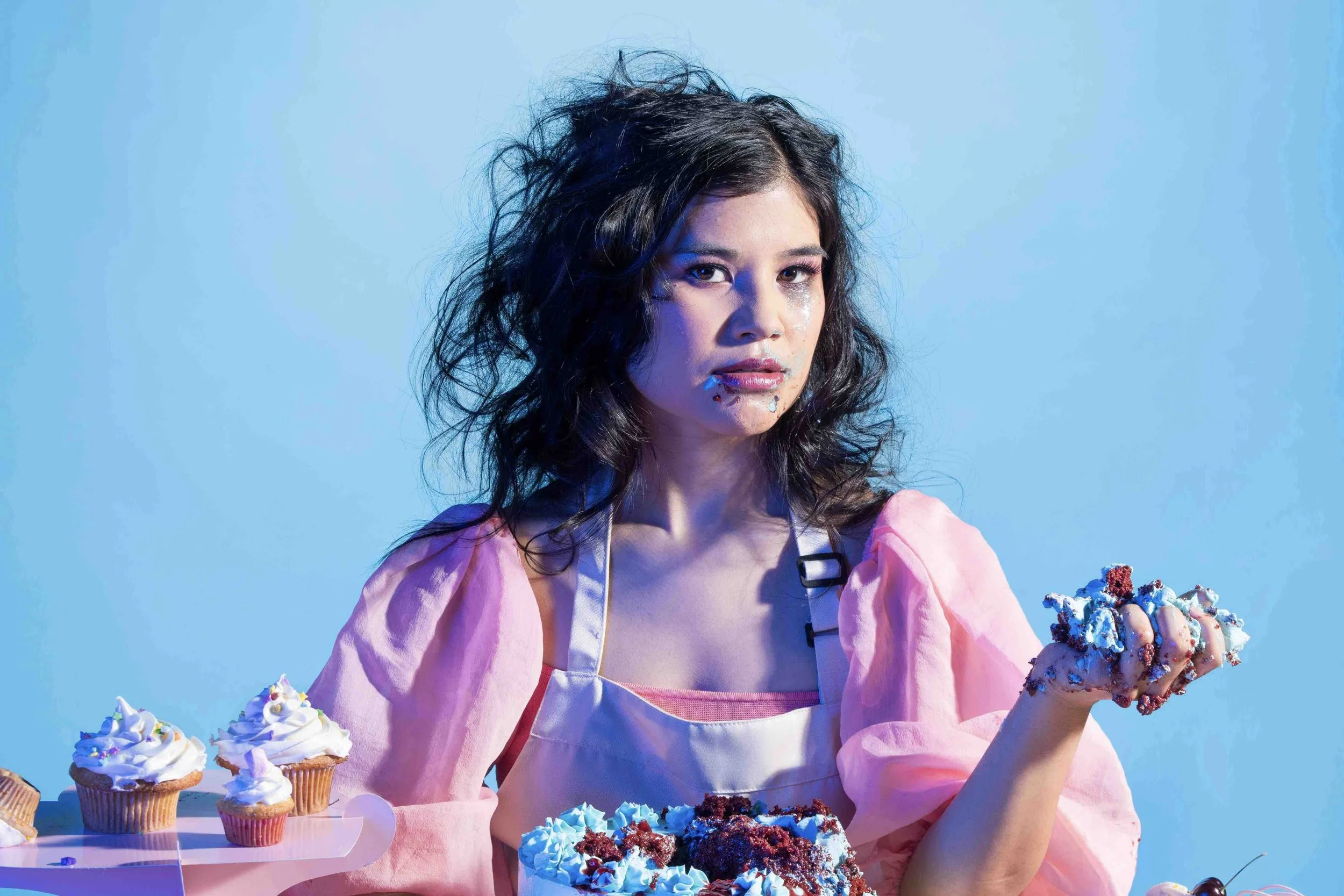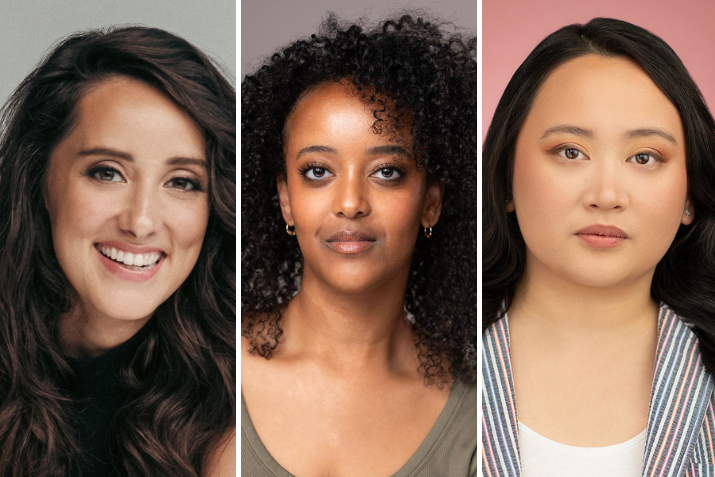Farm to Fable puts a new spin on "dinner theatre"
Writer-director Amiel Gladstone serves up a one-woman play centred on a virtual cooking class
Meaghan Chenosky in Farm to Fable. Photo by Emily Cooper
The Cultch presents Farm to Fable November 17 to 21 at 7 pm and November 20 at 4 pm via livestream.
AS THE PANDEMIC dragged on and on, writer-director Amiel Gladstone and his partner found themselves doing what practically everyone else was: spending far more time in the kitchen and in front of the TV than they ever had before. With restaurants and movie theatres shut down, they got into a groove—and the domestic isolation gave Gladstone an idea for a brand-new virtual theatre piece.
“We’ve been ripping through Canadian and British bake-off shows and also MasterChef, the American version,” Gladstone says in a phone interview with Stir. “All those shows are so good at showcasing the personalities of the contestants….On those shows, they’re not chefs; they’re home cooks. It’s not like Iron Chef or Beat Bobby Flay. I like the ones where it’s people you can imagine—normal people.
“With the pandemic, we saw an explosion of Instagram and YouTube cooking shows, but I haven’t seen one which I think is great,” he says. “I also know personally we were doing so much more cooking for ourselves, so then I thought, ‘What about a theatre piece that’s a cooking show that has multiple characters all played by one person?’ How do we exploit the interactivity and the theatricality of it so that it still feels like it’s not something you’d see on the cooking network and it’s still very much in the theatre world. How do we meld all those into some weird experiment?”
The answer is Farm to Fable, a one-woman livestream show that has its world premiere at the Cultch November 17 to 21. Starring Meaghan Chenosky, it takes place over Zoom and features a bona fide cooking lesson, giving new meaning to the phrase “dinner theatre”.
Chenosky plays Nadine (among other characters), who’s having a rough go: her dream restaurant has closed, she has broken up with her boyfriend, and she’s now living with her mom. To get back on track, she does a COVID pivot, deciding to offer an online cooking show, only to encounter all sorts of unexpected challenges.
As soon as audience members purchase a ticket, they receive a shopping list for the easy meal Nadine will guide them through so they can cook along in real life. There’s no pressure; you can also just sit back and watch the show. The dish is Fire Roasted Tomato Tortilla Soup.
Gladstone directed and co-created of 2020’s online hit do you want what i have got? a craigslist cantata. Building on the success of that production, he designed Farm to Fable specifically for the livestream era; given the uncertainty facing theatres in terms of programming for the 2021-22 season, the Cultch wanted a digital offering. Gladstone—whose other writing credits include the Cultch’s East Van Panto 1 and 2; The Orpheus Project by Music on Main, and Western Canada Theatre’s Three Winters, Are We Cool Now?—saw the online factor as a chance to design a play that wouldn’t have otherwise come to be.
“I’ve tried to make a little bit of lemonade out of it,” Gladstone says. “What are things we never would have attempted before? We’re going to take the opportunity now to try that. If we’re going to make a digital show, what are the things we can try? I’ve been very interested in the interactivity and the liveness of it.
“It just feels like such an experiment because there are so many things we don’t know until we add an audience,” he says. “The audience will be part of regular Zoom meeting where they’re being led by this fictional character through a cooking class. Everything in the show is pretty much what I think most people have in their house—a pot, a frying pan, a knife; it’s very, very basic. One of the things I’m realizing in the grand experiment is it can’t be a complicated, crazy meal. Don’t come expecting gourmet, because we realize first of all we don’t know the levels of everybody, or what everybody’s got in their kitchen. The question I have is ‘How hard is it to follow a narrative if you’re also making sure you’re watching the onions on the stove?’”
Chenosky can cook for real, he says; after so much slicing and dicing during rehearsals, the show’s team members have been going home nightly with bags of chopped onions and garlic.
Amiel Gladstone
Working on Farm to Fable has made Gladstone more aware of the parallels between restaurants and theatres. “Takeout is their digital; it’s not the same, but it also has benefits,” he says. “For those of us who have favourite restaurants, ordering food from there can feel nostalgic and scratch a bit of an itch, but it’s not the whole thing.”
The creative process has also triggered discussions about the value of livestreaming in a post-pandemic universe.
“Part of the conversations in the theatre world has been: does it matter if it’s live? Does it matter if you can only see it at 8 o’clock?” Gladstone says. “And what I’ve heard from audiences is some people really care and some people really don’t care. It’s totally wild. For some people it’s part of the experience knowing it’s live, and others don’t care; it’s ‘I love being able to watch it whatever time I want.’ I’ve had lots of people say ‘We can’t watch a show a 8 o’clock at home because we have to get the kids to bed.’ Liveness is not a thing for them. Whereas other people want to know anything could happen and that this is a unique experience.
“My ideas about accessibility to the theatre have changed so much,” he says. “I’m of many minds about it. We used to say ‘everybody can come to the theatre.’ Well, actually, that’s not true. As we keep going through this, it’s a bit of looking at those barriers….Maybe we should be less precious: if you can’t see it live but you still want to see it, maybe that still should be possible.”
Gladstone admits he’s still not entirely certain how the show will go; while anything can happen in a live performance, it seems harder to control everything that could potentially go wrong in a virtual one-woman play/cooking show/dinner party.
“It still feels very experimental, very unknown,” Gladstone says. “The old saying is, ‘if you’re not nervous, there’s something wrong, or wrong with you.’
“I guess the one thing [for audiences] with Zoom is you can just turn everything off and be as noninteractive as you want,” he adds. “I feel a similar level of nerves as all my other shows, but there’s a difference. I’m usually in the audience with everybody. This way, I can react how I want. I can pace around; I won’t be glued to my theatre seat. I know playwrights and directors who used to watch a show from the green room, from the monitor stage, because they couldn’t handle being in the audience. Now we’re all doing that.”
For more information, see the Cultch.


